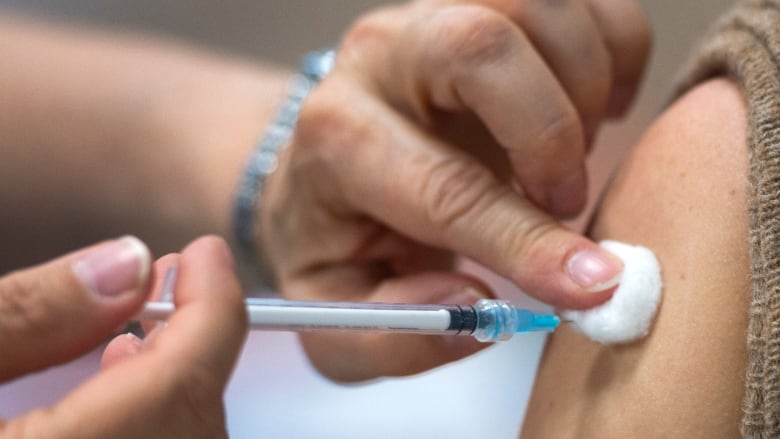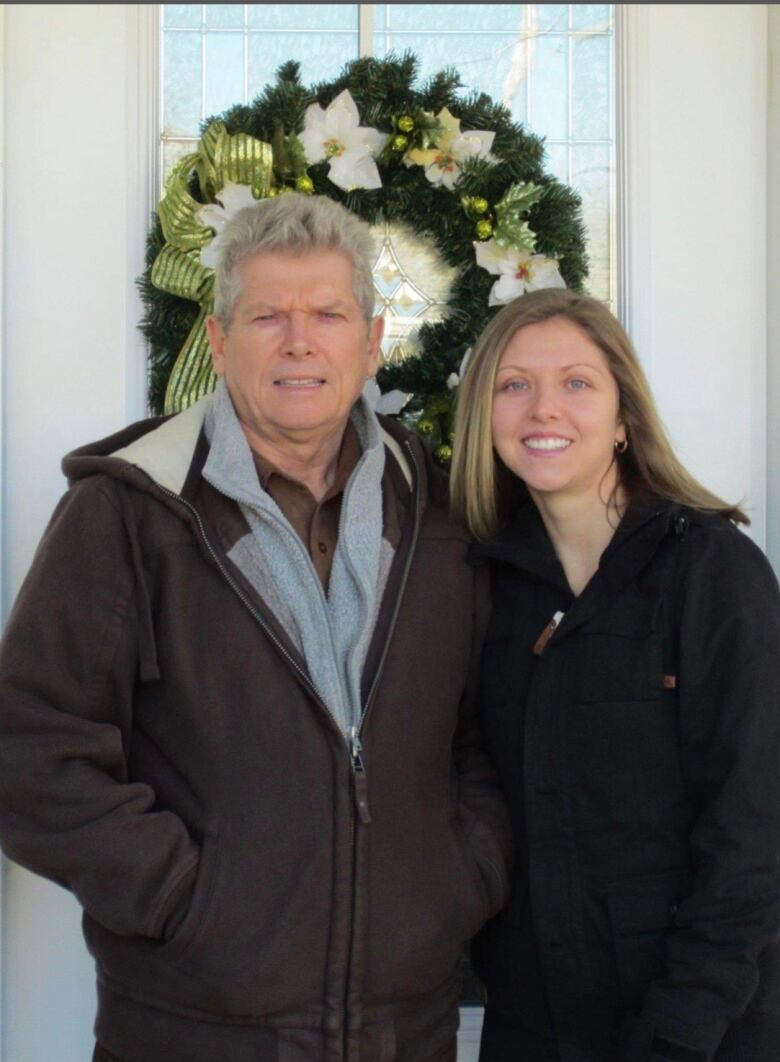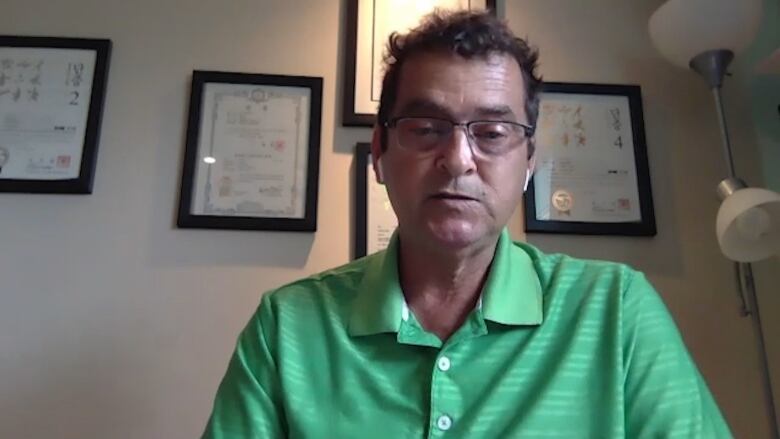Advocates ask if immunocompromised patients will be prioritized for 2nd vaccine shot
Province says it is taking guidance from National Advisory Committee on Immunization on dosing interval

As cancer patients, organ transplant recipients,and other vulnerable populations start to receive their first dose of COVID-19 vaccine, some are turning their minds to the next one.
Those with a lowered immune system are wondering whether Nova Scotia's firm commitment to an age-based rollout will extend to the second dose.
"If they are going to go that [age-based] route, I understand it," said Karen Chiasson, who was raised in Cape Breton and now lives in Calgary.
Chiasson's father, Robert, still lives in Sydney and has an aggressive form of metastatic prostate cancer. While he received his first dose about two weeks ago, Chiasson has been advocating for him to receive his second dose soon.

"It's just once they do have as many people with that first dose as possible, then it would be really great to see them open it up for these cancer patients to have their second dose, even if that can't be within, say, that three-week span, but just as soon as they could possibly get it to them," Chiasson said.
Safe to extend the interval: Strang
Experts have said that even one shot of all COVID-19 vaccines provides protection for the recipient. The timing of the second shot, and how long the interval between the two can be, is still an area of research.
Nova Scotia has chosen to extend the interval between the doses by up to four months. Nova Scotia's chief medical officer of health, Dr. Robert Strang, pointed to the guidance from National Advisory Committee on Immunization (NACI) at a briefing Monday.
"We have a National Advisory Committee on Immunization, who are experts in immunology and vaccinology and epidemiology, have looked at all that evidence, and made firm recommendations that it's perfectly safe to extend the interval between vaccination out to the four-month period," he said.
But other advice has led some patients to wonder if it would be better for them to stick to the manufacturer's recommendations for a 21- or 28-day interval.
Ontario's Vaccine Clinical Advisory Group is one body which has recommended some exceptions to extended dose intervals, including people undergoing cancer therapy that suppresses the immune system and organ transplant recipients. In those cases, the group advised sticking to the maker's directions.

Marc Maillet, the provincial director of the Canadian Transplant Association for Nova Scotia, wrote to the health minister and Dr. Strang about two weeks ago. He asked forconsideration for organ transplant recipients in the dosing policy, but has not received a response.
Maillet fears this will put transplant recipients more at risk and significantly restrict their lives.
"Even after your first dose you're not going to feel safe or comfortable enough to venture out in the community, to go shopping or go out for your essentials," he said.
"I think even after the first dose, even after the entire population has their first dose, the transplant community will still be quite anxious to move about freely, like most of the population will be able to."
Heightened anxiety
Andrew Ross, a radiologist and nuclear medicine physician at the QEII hospital in Halifax, said his wife is undergoing cancer treatment, and every two months she must take a medication that suppresses her immune system.
Her doctors advised her it would be helpful to take the COVID-19 vaccine at a time when her immune system is strongest and most active, and on Monday she was able to book an mRNA vaccine accordingly.
Ross has been very concerned about the timing of his wife's first and second shotbecause of her lowered immunity.
"This is another anxiety-producing side of things, because at this point the province doesn't in any way recognize special populations or special issues like this, it's just kind of a carte blanche, one size fits all," he said.
The spike in cases in the province is frightening for his family.

"You just are a little bit more nervous about what you're tracking back in when there's such a much more significant load of virus potentially in the communities you're in," he said.
Ross said he hopes vulnerable groups will be able to receive priority for the second round of shots.
Following NACI guidance
In response to questions from CBCNews about whether vulnerable populations such as cancer patients would qualify faster for a second dose, a spokesperson for the Department of Health and Wellness sent a statement that did not commit to such a course.
"We certainly appreciate the concerns that Nova Scotians have, especially people with underlying medical conditions who would like to receive their second dose sooner," the statement from spokesperson Heather Fairbairn read.
The statement explained the province has adopted NACI guidance that second doses can be offered at up to a 105-day interval.
"We will continue to review the COVID-19 vaccine plan based on national guidance, epidemiology and vaccine supply," the statement said.












_(720p).jpg)


 OFFICIAL HD MUSIC VIDEO.jpg)
.jpg)



























































































